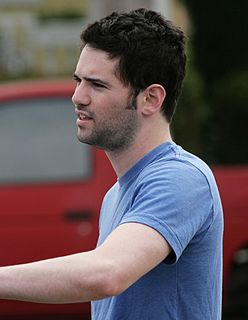A Quote by Rob Bell
I like to say that I practice militant mysticism. I'm really absolutely sure of some things that I don't quite know.
Related Quotes
When people say, well, they disapprove, I'd like to know what the specifics are, because sometimes - and the president [Barack Obama] has admitted this - they may not feel like he's really explaining and understanding the emotion behind some of these fears [about Iran]. And that's a perfectly legitimate question for people to ask. But if you look at the results of where we are, I think there are some things I agree with and some things I don't agree with, and I think that's absolutely fair game.
Now I also want to say, without a doubt, there are some wonderful, wonderful, absolutely wonderful things about being a man. But at the same time, there's some stuff that's just straight up twisted, and we really need to begin to challenge, look at it and really get in the process of deconstructing, redefining, what we come to know as manhood.
I was a really, really serious kid. And a really kind of controlling kid. Like I had things that, now, people would say are like - there's a name for many disorders as we know - but I would say, "If I pick this rubber band, then this will happen." It was that kind of want to control things, which I think all kids have to some extent.
I've definitely seen things that have made me laugh. And there's some things that are really smart and like, "Oh man, we should have done that, that's really cool!" And there's some things that are like, "Oh, do they know something? I don't know!" So there's the whole variety of things that are in those theories. But they're cool.
In formulating any philosophy the first consideration must always be: What can we know? That is, what can we be sure we know, or sure that we know we knew it, if indeed it is at all knowable. Or have we simply forgotten it and are too embarrassed to say anything? Descartes hinted at the problem when he wrote, 'My mind can never know my body, although it has become quite friendly with my legs.
Of course, mysticism is very hard to isolate because, given the kind of consciousness that I was sort of instructed in as religious consciousness; that borders on mysticism so closely that it's hard to know whether you qualify or not, or whether mysticism is artificially isolated when it is treated as a separate thing from experience. Obviously, mysticism can be a form of madness, but then consciousness can be a form of madness.



































